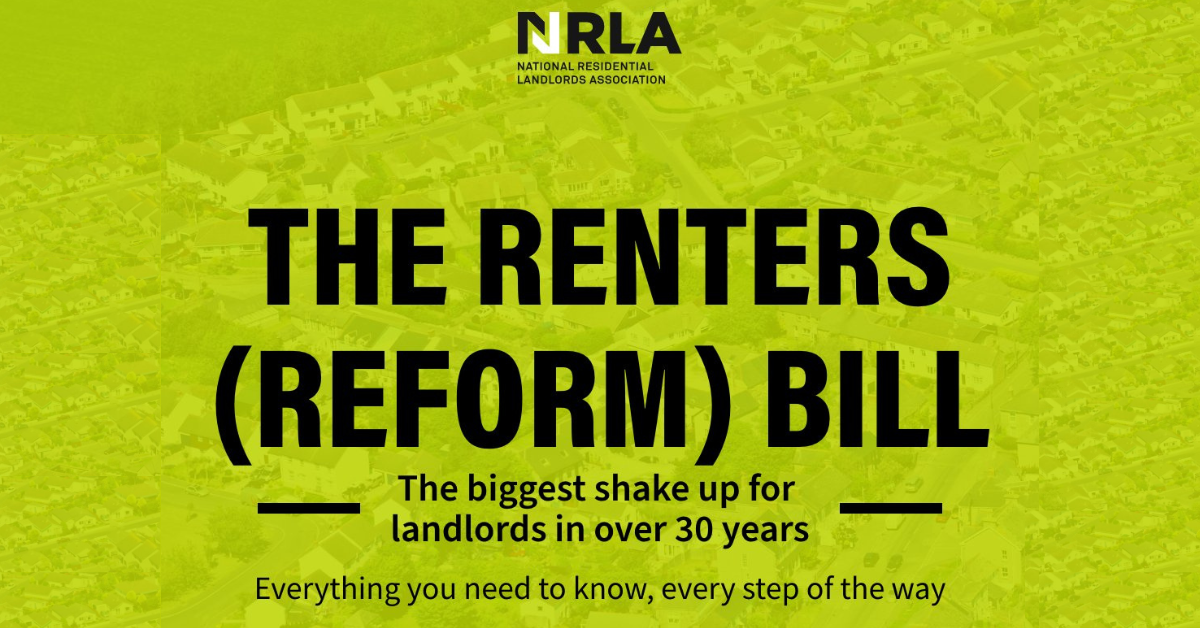

Renters Reform reaches Lords: What we’ve achieved so far
The Renters (Reform) Bill has passed through the Commons this week, with debate now to move into the House of Lords. Chris Norris, NRLA director of policy and campaigns, explains what this means for landlords.
A ‘landlords’ charter’, a ‘flawed bill’ a ‘new deal for renters, gone sour’ … these are just some of the headlines we have seen this week as the Government’s Renters (Reform) Bill finally passed report stage and third reading in the Commons.
But what is the truth behind the headlines?
In all candour, it’s not a perfect Bill. It’s a compromise, which allows the Government to deliver its policy of abolishing no-fault possessions, without destroying landlords’ confidence to invest. It seeks to deliver more security to tenants, whilst providing landlords with some additional options should things go wrong.
Yesterday MPs tabled amendments in the Commons, and, despite Labour opposition, housing minister Jacob Young successfully moved amendments ensuring the legislation will continue to the Lords and (almost certainly) into law.
More than 100 pages of amendments had been tabled from both sides of the house, but in a session that lasted into the evening, key Government changes – well publicised since being leaked to the press a number of weeks ago – were accepted.
These include commitments to:
- Carry out a full review of the courts before Section 21, the so-called ‘no fault eviction’ is abolished
- Introduce rules meaning tenants cannot hand in their two months’ notice within the first four months of a tenancy (effectively introducing a minimum six-month period by default)
- Conduct a review of licensing
- Extend the mandatory possession ground for student lets to all student homes, not just HMOs
To us these are sensible adjustments that do not turn the Bill – as suggested by some cohorts in the media – into a ‘landlords’ charter’, but rather reflect the reasonable calls we have made in response to what we saw as the unintended consequences of the initial Bill.
Let’s be clear, the Government has been unwavering in its commitment to get rid of Section 21 from the start, and this is still the case. What it is doing by ordering the court review is simply ensuring that when it is abolished landlords – and tenants – can be assured of swift access to justice.
The NRLA campaign
Our lobbying work over the months and years leading to yesterday’s debate focussed on five pillars.
- Ending the anti-landlord rhetoric and garnering support for good landlords
- Addressing issues in the student housing market stemming from plans to abolish fixed term tenancies.
- Establishing firm procedures as regards anti-social tenants.
- Winning a commitment to reform the courts before the removal of Section 21
- The abolition of local licensing
The strength of these arguments shines through in the fact that the Government has addressed most of our concerns. There has been significant movement in all these areas, not least the commitment to court reform and rules around when tenants can serve notice.
Whilst certainly not universally popular, the Bill is in much better shape today than it was last November when NRLA gave evidence to the committee of MPs assessing it.
What happens next – could the Bill change again?
It could, but it probably won’t much.
Traditionally debate in the Lords is more lengthy and extensive than that in the Commons, and over the coming weeks we are likely to hear lot of noise about further amendments to the legislation.
Lots of peers with an interest in housing will table amendments for debate which are highly unlikely to be adopted by the Government.
However, the Bill will probably continue its progress through Parliament largely unchanged. The Opposition has said it does not plan to block the Bill and the Conservatives have a large enough majority in the Commons and reserve the right, once the Bill returns to the Commons to reverse any changes made in the Lords that would alter its stated policy intentions.
It is difficult to predict exactly how low the remaining stages of the Bill will take to complete, but having taken a year to traverse the Commons it is possible that its passage through the Upper House could be complete by the autumn.
After this the Bill will be sent to the King for Royal Assent and will move into law. Although it will not immediately come into force.
What has happened this week represents a huge step forward for the Government, after fears they may run out of time to have the legislation passed ahead of a general election.
We are confident the Bill as it stands delivers a balance for landlords and tenants and it is in the interests of both that the Bill passes smoothly through these final stages. The alternative is yet more uncertainty, and the prospect of another bill courtesy of the next government.
More information
For all the latest on the Renters (Reform) Bill check out our information hub here.

